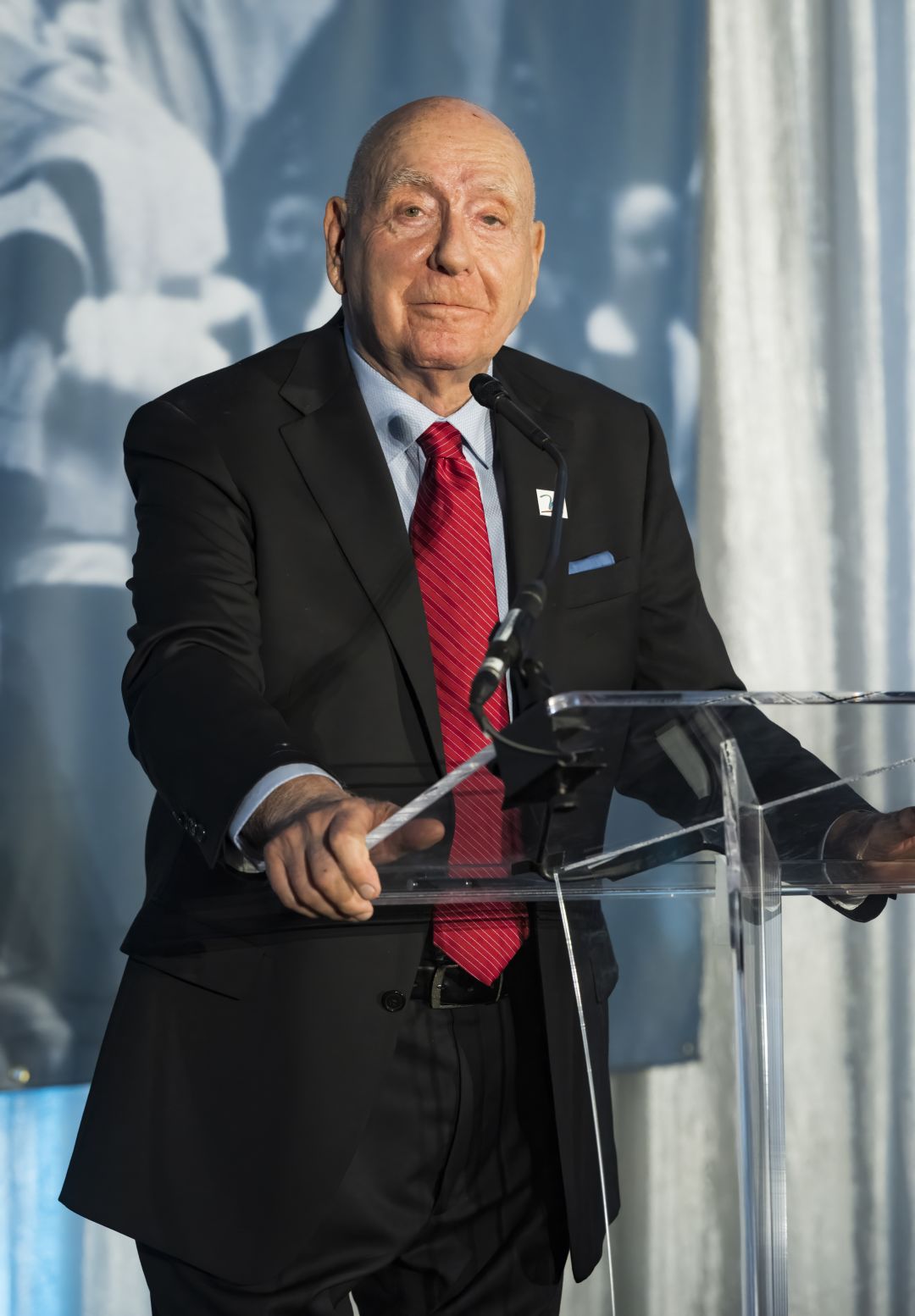Dick Vitale Has a New Book Out, and It's All About Raising Money for Pediatric Cancer Research

Image: Cliff Roles
We're on the cusp of March Madness, with the NCAA men's basketball tournament kicking off today in Dayton, Ohio, and millions of people hurriedly completing their brackets before the whistle blows. Here in Sarasota, there's another piece of college hoops action taking place. The much-loved TV announcer and local resident Dick Vitale is releasing a new book that's all about raising money for pediatric cancer research.
In recent years, Vitale has been diagnosed with melanoma, lymphoma and vocal cord cancer. In his new book, Until My Last Breath: Fighting Cancer With My Young Heroes, he tells stories from his treatments, while also sharing the stories of young cancer survivors he's met over the years through his work with the V Foundation for Cancer Research. Each year, Vitale attracts a number of big sports names to Sarasota for his annual gala on behalf of the foundation; last year's event netted $12.4 million for the cause.
Having recently undergone surgery for vocal cord cancer, Vitale cannot speak at the moment, but he did agree to answer some of our questions about his experience and the book via email. Here's what the basketball legend had to say.
In your book, you're open about the depression and anxiety you experienced during your cancer diagnoses. How have you managed those symptoms during your treatment? Do you have any tips for others struggling in a similar way?
"I think my feelings were very normal when I was notified that I had cancer. I believe many people develop fear about what you will be facing. However, once you grasp the situation, you must begin to fight back and think in a positive manner. I have had three major battles with melanoma, lymphoma and, recently, vocal cord cancer.
"My great asset was the fabulous support I received from so many people, starting with my loving wife Lorraine and my entire family. The prayers and love I received gave me the inspiration to be strong mentally, especially when I had to do six months of chemotherapy for my lymphoma battle and when I had 35 radiation treatments. I strongly recommend to have faith and to think positively."
What are your thoughts on the way mental health is being discussed in sports? Athletes seem more open to describing their struggles. Why do you think that is?
"I think that discussions around mental health issues and treatment coming to the forefront are very positive. In sports, it has become a big issue. So many athletes deal with so much pressure."
In the book, you mention the small percentage of the National Cancer Institute budget that goes toward pediatric cancer, but that the figure has been rising. Why is that? And does that give you hope that more support will be forthcoming?
"Raising dollars for pediatric cancer is a major priority for me, because, for years, many children have been treated with medications from years ago and parents of children battling cancer have told me that, in many cases, they are using medicines that were made for adults. I am excited to hear that better things are happening in developing new updated medicines that are specifically for kids.
"I am proud that in 18 years devoted to pediatric cancer research, our gala has raised more than $68.1 million for research and that number could go to $80 million after our fabulous gala on May 3 at The Ritz-Carlton in Sarasota."
You were very open about what you were going through on social media. Why did you decide to be so public about your diagnoses and how has that affected your recovery?
"The key reason I went public with my various dealings with cancer was to let people understand what a nightmare it is—not only to the patient, but to the entire family. In many cases, the diagnosis of cancer can be a life-changing situation for the entire family. The constant visits to your medical team, plus the scans and bloodwork, really wear on you and the family. I wanted people to see what is involved in fighting this vicious disease. Most of all, I wanted to build awareness of how much it would mean to me for people to donate, because new medicines are needed, and children should not be going through all the things that I faced.
"I wanted simply to utilize my visibility in a way to help kids dealing with this brutal disease. I want to thank all who have sent me numerous prayers and loads of loving messages as they really helped me in my tough moments."
What are the best ways to support parents of children with pediatric cancer? What can we be doing to help them more?
"The best thing we can do is fund game-changing pediatric cancer research. The cancer death rate has declined by more than half in children facing cancer since 1970. Cancer research is working, but more is needed to develop the more targeted therapies of the future."
Is the Sarasota community doing enough to support cancer patients? What could we be doing better?
"Through events like the Dick Vitale Gala, the Sarasota community has embraced what our mission means and has helped big time with kindness and generosity. I am so grateful for their support in raising funds for pediatric cancer research and throughout my cancer journey. And if anyone in Sarasota is interested in learning more about what they can do to support cancer patients, I urge them to visit v.org."



